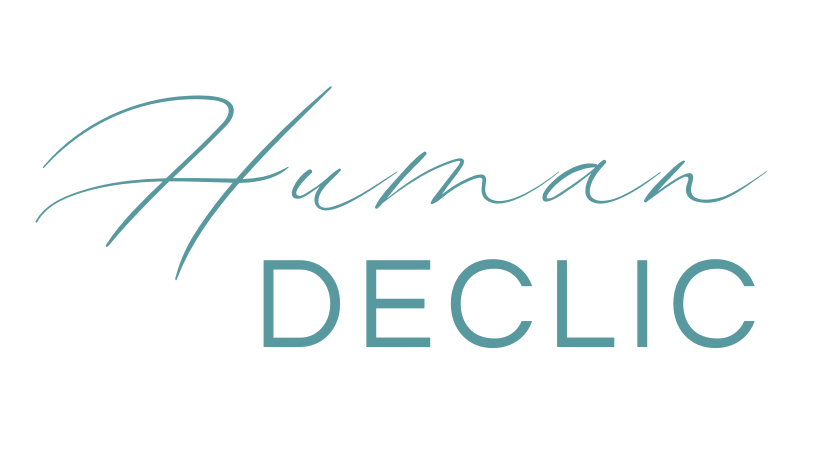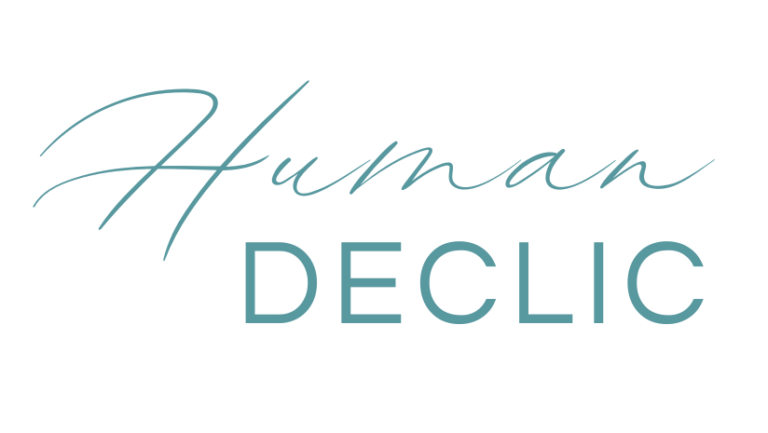In a constantly evolving professional world, where careers are becoming increasingly diverse and personalized, it’s essential to stay connected to your true aspirations and skills. Yet, many individuals sometimes experience a loss of direction or a lack of motivation in their work. This is where skills assessment steps in as a revolutionary tool, capable of turning uncertainties into clear and motivating opportunities.
But how can a simple assessment have such a significant impact on your professional life? This article delves into the heart of this question, exploring the multiple ways in which a skills assessment can revitalize your commitment to your current job or even inspire a bold career change. Through in-depth analysis and practical advice, we invite you to discover how rediscovering your passions and skills can redefine your career path and reignite your enthusiasm for the future.
Get ready to be inspired and consider new possibilities that await you, as this journey through skills assessment could be the boost you’ve been waiting for to give your career a fresh start.

Understanding Skills Assessment
Skills assessment is a professional development tool designed to help individuals take stock of their careers, assess their skills, motivations, and aspirations, and plan their future career directions. This tool is particularly useful for those considering a career change, seeking to reposition themselves in the job market, or simply wanting to understand where they stand professionally. Here’s a detailed exploration of what a skills assessment is, its objectives, the evaluation process, and the parties involved.
Definition and Objectives
What is a Skills Assessment?
A skills assessment is a structured process guided by a professional that allows individuals to conduct an in-depth analysis of their professional and personal skills, interests, and motivations. The goal is to identify avenues or opportunities for professional development or career change that are in line with the individual’s personal and professional profile.
Objectives
The objectives of a skills assessment include:
- Self-assessment: Encouraging individuals to reflect on their current professional situation and aspirations.
- Clarification: Helping to define clear and achievable career goals.
- Planning: Developing an action plan to achieve these goals, whether they involve advancement within the same company, changing sectors, or pursuing further education.
Evaluation Process
Key Stages of a Skills Assessment
The process of a skills assessment typically unfolds in three main phases:
- Preliminary phase: This phase defines the beneficiary’s needs and explains the framework and methods of the assessment. It establishes the groundwork for a trusting relationship between the beneficiary and the professional.
- Investigation phase: During this phase, various tools may be used (tests, questionnaires, in-depth interviews) to analyze skills, interests, passions, motivations, and potential career paths.
- Conclusion phase: This stage summarizes the results, discusses the envisaged and feasible professional projects, and proposes an action plan. It concludes with the provision of a summary document to the beneficiary.
Parties Involved
Who Conducts the Assessment?
Skills assessments are typically conducted by human resources consultants or specialized professional coaches. These professionals are trained to guide individuals through the assessment process and often possess expertise in career management and personal development domains.

Role of the Coach or HR Consultant
The role of the coach or HR consultant is crucial in the skills assessment process. They act not only as assessors but also as facilitators and advisors. Their main tasks are to:
- Guide the individual through the various stages of the assessment.
- Provide tools and methods for effective self-assessment.
- Offer emotional and professional support, including helping the individual identify their true aspirations and overcome obstacles.
In conclusion, a skills assessment is an enriching and constructive process that allows individuals to step back, analyze their professional journey, and plan their future with confidence and clarity.
Impact on Personal Motivation
Personal motivation at work is crucial for satisfaction and productivity. A skills assessment can play a significant role in revitalizing this motivation by helping individuals rediscover their true potential and align their professional activities with what truly inspires them. This section explores how self-discovery, alignment of passions and skills illustrate the positive impact of skills assessment on personal motivation.
Self-Discovery
Identifying Strengths and Weaknesses
The skills assessment begins with a guided process of introspection, where individuals evaluate their skills, interests, values, and aspirations. This assessment is often revealing as it highlights not only existing skills and talents but also areas needing improvement or development. By clearly identifying these elements, individuals can better understand what truly motivates them and what might be a source of frustration or stagnation in their current career.
Alignment of Passions and Skills
The Importance of Alignment for Intrinsic Motivation
Aligning passions and skills is fundamental to maintaining high intrinsic motivation. When people work in areas that resonate with their deep interests and utilize their natural skills, they are generally more engaged and satisfied. The skills assessment helps identify these alignments and mismatches, thus providing the necessary foundation to seek or redefine a role that maximizes both personal satisfaction and professional contribution.
To learn more about the benefits of a skills assessment, read our article where we explore in detail how this process can be a turning point in your professional life.
This section of the article highlights the profound impact that a skills assessment can have on personal motivation, providing tangible examples and emphasizing the importance of aligning skills and values, passions for sustainable professional fulfillment.

Strengthening Professional Engagement
Professional engagement is a key indicator of workplace well-being and performance. A skills assessment can play a crucial role in revitalizing this engagement by helping individuals rediscover their role and realign their professional goals. This section explores how a skills assessment can enhance engagement, improve job satisfaction.
Engagement and Job Satisfaction
Relationship between Engagement, Job Satisfaction, and Performance
Work engagement is often linked to the satisfaction a person feels in their role. Engaged employees are not only more satisfied but also more productive, less likely to leave their job, and more inclined to positively contribute to the company culture. Job satisfaction stems from various factors, including recognition, feeling valued, and the match between tasks performed and personal skills.
Impact of an Assessment on Engagement
Redefined Engagement
A skills assessment allows employees to thoroughly examine their current interests and skills and compare them to their professional responsibilities. This process can reveal incongruities or confirm alignments, thus providing an opportunity to discuss modifications or improvements to their role with their employers. This can lead to reengagement in their current position or a redefinition of their career path, making their daily life more enriching and aligned with their personal aspirations.
This section demonstrates that a skills assessment is not just an evaluation tool but a powerful change catalyst that can profoundly enhance individuals’ engagement and satisfaction, leading to increased performance and greater loyalty to their company.
Inspiration for Career Change
A career change is a significant decision in one’s professional life, often motivated by the desire for personal fulfillment, better job prospects, or simply renewal. A skills assessment can be a valuable tool in facilitating this change, opening doors to unexplored opportunities and guiding through the complex choices it entails. This section explores how a skills assessment can inspire and support a career change.
Opening up to New Opportunities
Revealing Unexplored Career Paths
A skills assessment deepens not only understanding of one’s own skills and aspirations but can also reveal career opportunities not previously considered. Through a detailed evaluation of transferable skills and personal interests, new professional avenues may unfold. This may include different industries, non-traditional roles, or new industries where existing skills can be innovatively valued.
Decision Making for Career Change
Factors to Consider for Successful Change
A career change must be a well-thought-out decision. Here are some essential factors to consider:
- Alignment with personal values: Ensure the new path aligns with your values and life principles.
- Financial viability: Evaluate the financial impact of the change, including potential training needs and income variations.
- Growth opportunities: Consider the professional and personal development prospects offered by the new career.
- Risks and benefits: Weigh the benefits against the risks involved, such as job security and progression opportunities.

Conclusion
After exploring in detail the multiple dimensions and benefits of a skills assessment, it becomes clear that this tool is essential for anyone wishing not only to understand where they stand professionally but also for those desiring to redefine and revitalize their career path. Whether through self-discovery, strengthening work engagement, or inspiring a career change, a skills assessment emerges as a strategic pivot.
Summary of Benefits
The skills assessment offers a multitude of advantages:
- Increased personal motivation through a better understanding of one’s own skills and interests.
- Strengthened professional engagement through a more precise alignment between professional roles and personal aspirations.
- Facilitation of an informed career change by identifying new opportunities and providing the necessary tools for a successful pivot.
Whether you are early in your career, midway, or even nearing the end, a skills assessment can offer you new and valuable perspectives that could be the catalyst for significant and positive change in your professional life.
Additional Resources
For those interested in pursuing a skills assessment, visit our dedicated page where you will find detailed information and the opportunity to sign up. You will also find additional resources for professional development.
Appendices
FAQs on Skills Assessment
Q: How long does a skills assessment take?
A: Typically, a skills assessment can last between 12 and 24 hours spread over several weeks.
Q: Can I do a skills assessment during my working hours?
A: Yes, in France, you can use your Personal Training Account (CPF) to fund a skills assessment during your working hours with your employer’s agreement.
Q: What are the expected outcomes of a skills assessment?
A: The main outcome is a personal development plan including recommendations for your training, professional development, and, if applicable, a career change.
Glossary of Terms
Skills Assessment: A process of evaluating and reflecting on an individual’s professional and personal skills.
Transferable Skills: Skills acquired in one context that can be effectively applied in another.
Professional Engagement: The level of dedication, passion, and motivation an employee invests in their work and responsibilities.
In conclusion, the skills assessment is more than just an evaluation tool; it is a gateway to a richer and more satisfying professional future. Explore this opportunity!





